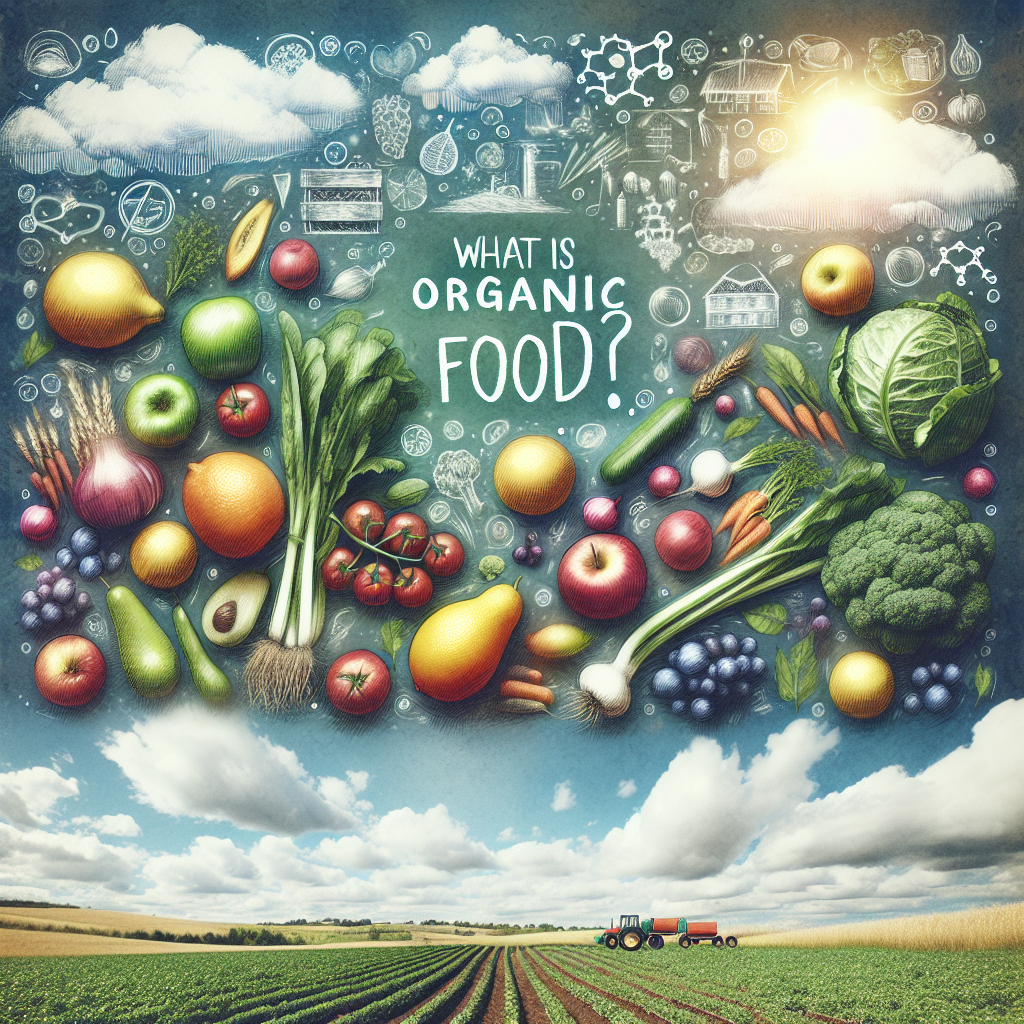Introduction

Diabetes is a chronic condition that affects millions of people worldwide. Managing diabetes requires a careful balance of medication, exercise, and diet. Among the various dietary choices available, organic food has been gaining attention for its potential benefits in managing diabetes. This article explores how incorporating organic food into your diet can be a game changer for those living with diabetes.
What is Organic Food?

Organic food refers to produce and other agricultural products that are grown and processed without the use of synthetic pesticides, fertilizers, genetically modified organisms (GMOs), antibiotics, or growth hormones. Organic farming practices aim to promote ecological balance and conserve biodiversity. The term “organic” is regulated by various national and international organizations, which set standards that farmers must follow to label their products as organic.
Organic vs. Conventional Food
Conventional farming often relies on synthetic chemicals to enhance crop yields and protect against pests and diseases. However, these chemicals can leave residues on food products. Organic farming, on the other hand, uses natural methods such as crop rotation, composting, and biological pest control. The main differences between organic and conventional food include:
- Pesticide use: Organic food typically has lower pesticide residues.
- Nutritional content: Some studies suggest that organic food may have higher levels of certain nutrients, such as antioxidants.
- Environmental impact: Organic farming practices are generally more sustainable and environmentally friendly.
Organic Food and Diabetes: The Connection
Recent research has begun to explore the potential benefits of organic food for individuals with diabetes. The connection between organic food and diabetes management can be attributed to several factors, including reduced exposure to pesticides, higher nutrient content, and the absence of GMOs and other synthetic additives.
Reduced Pesticide Exposure
Pesticides used in conventional farming can have harmful effects on human health. Some studies have linked pesticide exposure to an increased risk of developing type 2 diabetes. Pesticides can disrupt the endocrine system, which plays a crucial role in regulating blood sugar levels. By choosing organic food, individuals with diabetes can reduce their exposure to these potentially harmful chemicals.
Higher Nutrient Content
Organic food is often touted for its higher nutrient content compared to conventionally grown food. Some studies have found that organic fruits and vegetables may contain higher levels of antioxidants, vitamins, and minerals. For instance, a study published in the “British Journal of Nutrition” found that organic crops had significantly higher concentrations of antioxidants compared to conventionally grown crops. Antioxidants are important for reducing inflammation and oxidative stress, which are common in individuals with diabetes.
Absence of GMOs and Synthetic Additives
Genetically modified organisms (GMOs) and synthetic additives are commonly found in conventional food products. While the long-term health effects of GMOs are still being studied, some experts believe that they may contribute to health issues such as insulin resistance. Organic food, by definition, does not contain GMOs or synthetic additives, making it a cleaner and potentially safer option for those managing diabetes.
Benefits of Organic Food for Diabetes Management
Incorporating organic food into a diabetes management plan can offer several benefits. Here are some of the key advantages:
Improved Blood Sugar Control
Organic food, particularly fruits and vegetables, often has a lower glycemic index compared to their conventional counterparts. The glycemic index (GI) measures how quickly a food raises blood sugar levels. Foods with a lower GI are digested and absorbed more slowly, leading to a gradual rise in blood sugar levels. This can help individuals with diabetes maintain more stable blood sugar levels throughout the day.
Enhanced Nutrient Intake
As mentioned earlier, organic food may contain higher levels of certain nutrients such as antioxidants, vitamins, and minerals. These nutrients are essential for overall health and can help support the body’s ability to manage diabetes. For example, antioxidants can help reduce inflammation and oxidative stress, which are often elevated in individuals with diabetes.
Reduced Risk of Complications
Diabetes can lead to a range of complications, including cardiovascular disease, kidney damage, and nerve damage. A diet rich in organic food can help reduce the risk of these complications by providing a higher intake of nutrients that support heart health, kidney function, and nerve health. Additionally, reducing exposure to pesticides and synthetic chemicals can help protect against the development of other chronic conditions that may exacerbate diabetes complications.
Expert Opinions on Organic Food and Diabetes
Many health experts and nutritionists advocate for the inclusion of organic food in a diabetes management plan. Dr. David Perlmutter, a renowned neurologist and author, emphasizes the importance of a diet rich in organic, whole foods for managing chronic conditions such as diabetes. He suggests that organic food can help reduce the body’s toxic burden and support overall health.
Similarly, Dr. Mark Hyman, a leading functional medicine expert, recommends that individuals with diabetes focus on a diet that includes organic, non-GMO, and pesticide-free foods. He believes that such a diet can help improve insulin sensitivity and reduce inflammation, which are key factors in diabetes management.
Practical Tips for Incorporating Organic Food into Your Diet
Transitioning to an organic diet can seem daunting, but it doesn’t have to be. Here are some practical tips to help you get started:
Start Small
You don’t need to switch to an entirely organic diet overnight. Start by incorporating organic versions of the “Dirty Dozen” – a list of fruits and vegetables that typically have the highest pesticide residues. The Environmental Working Group (EWG) updates this list annually, and it usually includes items such as strawberries, spinach, and apples.
Shop Local
Visit local farmers’ markets or join a community-supported agriculture (CSA) program to find fresh, organic produce. Local farmers often use organic practices even if they are not certified organic, so it’s worth asking about their farming methods.
Grow Your Own
If you have the space and time, consider growing your own fruits and vegetables. This way, you can ensure that your produce is grown without synthetic pesticides or fertilizers. Even a small garden or a few potted plants can make a difference.
Read Labels Carefully
When shopping for packaged foods, look for the USDA Organic seal or other recognized organic certifications. Be aware that terms like “natural” or “all-natural” do not necessarily mean that a product is organic.
Conclusion
Incorporating organic food into your diet can be a potential game changer for managing diabetes. By reducing exposure to pesticides, increasing nutrient intake, and avoiding GMOs and synthetic additives, organic food can help improve blood sugar control and reduce the risk of diabetes complications. While more research is needed to fully understand the impact of organic food on diabetes, the current evidence suggests that making the switch to organic can be a beneficial part of a comprehensive diabetes management plan. As always, it’s important to consult with a healthcare professional before making significant changes to your diet.
By making informed choices and gradually incorporating more organic food into your diet, you can take a proactive step towards better diabetes management and overall health.
